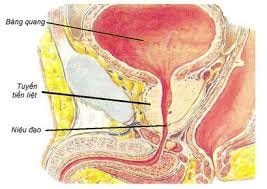New advances in prostate cancer treatment
Newcastle disease virus in chickens could become an effective treatment for prostate cancer in humans.
This is the conclusion of a study conducted by a group of American scientists and published in the Journal of Virology on April 8.

Illustration photo: Benhvienungthu.com.vn
Xinhua News Agency quoted the above newspaper as saying that the Newcastle virus (abbreviated as Newcastle virus) causes conjunctivitis in poultry and wild birds but does not pose a threat to human health, except for some mild flu symptoms that appear in people who come into direct contact with infected animals.
However, thanks to the application of new gene island technology, the group of scientists successfully transformed the Newcastle virus into a new virus capable of killing all prostate cancer cells.
After being genetically engineered, the "new version" of the Newcastle virus can only replicate when exposed to prostate-specific antigen (PSA) and is therefore particularly suitable for treating prostate cancer, said research team leader Elankumaran Subbiah.
According to team leader Subbiah, his research team has successfully tested this method in the laboratory, whereby during the replication process, the recombinant Newcastle Viruses only focus on eliminating and effectively eliminating prostate cancer cells without harming other normal cells. In addition, these Viruses also seek out and destroy metastatic cancer cells.
Although there are still many processes and a long way to go before this new invention becomes a practical cancer treatment, Mr. Subbiah still believes that the new Newcastle virus will help prevent prostate cancer effectively with much lower doses of drugs than current treatments.
Not only that, the new treatment method also reduces side effects compared to hormone and chemotherapy treatments, and can be injected directly into the veins or directly onto the tumor thanks to its high safety.
The research team said it is applying for a license and looking for partners to cooperate in applying the new treatment method to clinical trials on humans./.
According to (TTXVN) - VT






